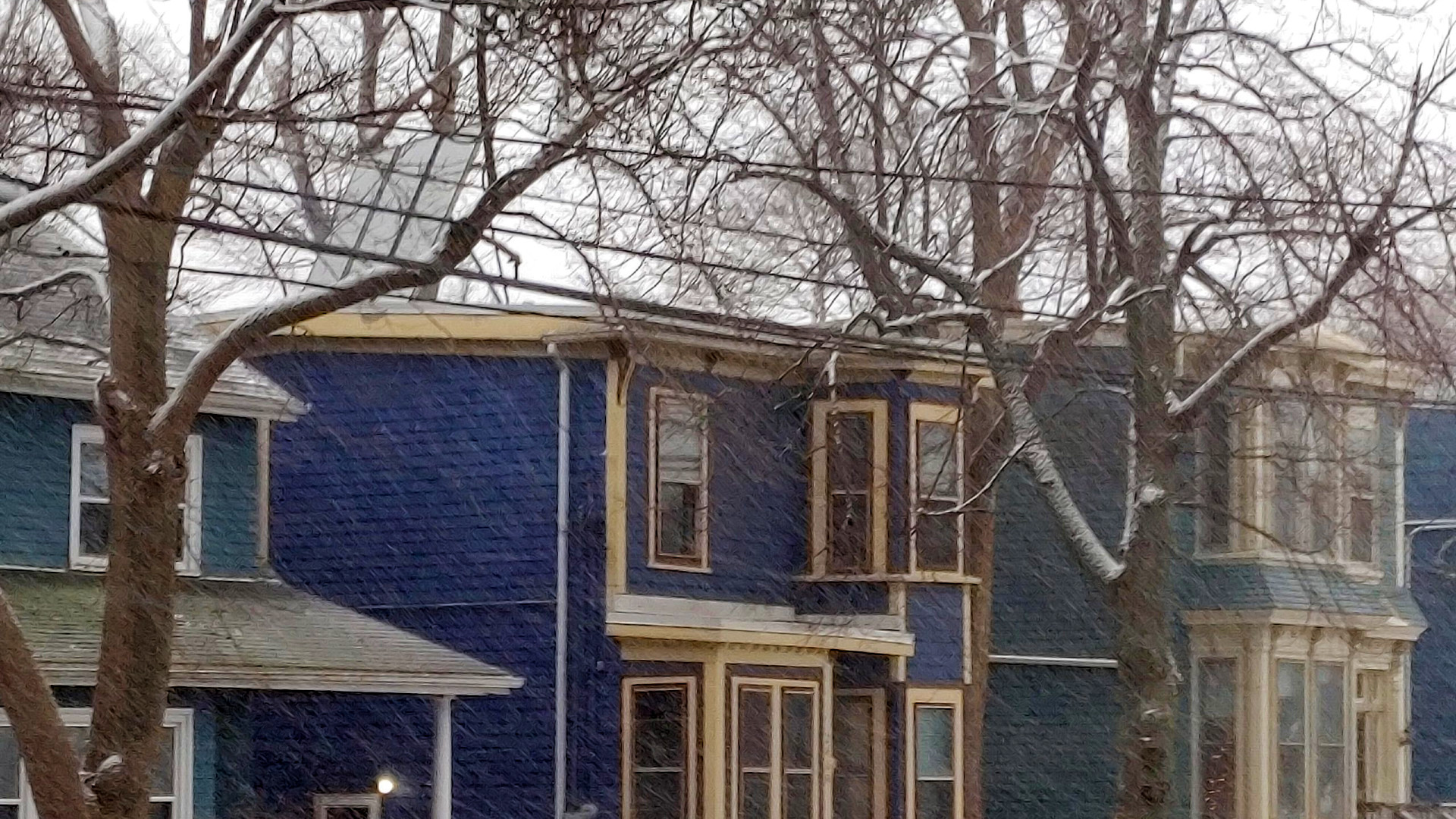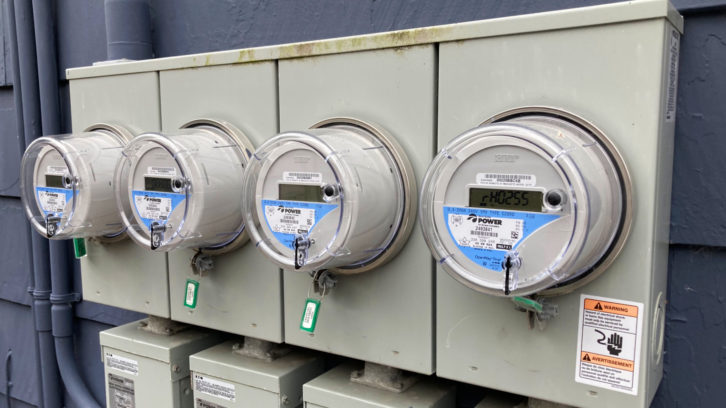Grey skies may be on the horizon for future solar projects in Nova Scotia
Solar proponents slam NSP proposal to charge homeowners with solar panels

caption
A house on Robie Street in Halifax is equipped with solar panels on Friday. Future solar installations will cost homeowners a lot more if a proposal from Nova Scotia Power goes forward.Nova Scotia Power wants to bill solar-powered homeowners based on the amount of electricity they generate.
The proposal was part of the utility’s application to increase rates this week and attracted instant criticism from proponents of solar power all over the province.
“We can only build when it’s beneficial to all customers … with small exceptions for pilots that provide different types of benefits over the longer term,” said Nova Scotia vice-president Dave Landrigan during a news conference on Friday.
“We’re only allowed to build assets that are justifiable and provide benefits for all customers.” He said the current system amounts to a subsidy for homeowners with solar installations.
Mayor David Mitchell of Bridgewater was “filled with rage,” when he received the email from Nova Scotia Power about the 10 per cent rate increase they are seeking and the proposal to charge owners of solar panels.
“(The proposal) will kill home solar projects going forward. Like no one in their right mind would go ahead with solar panels on their roof if they had this charge,” said Mitchell, who installed his own solar panels in August 2021 and won’t be affected by the increase.
“In addition to that, it goes against every climate expert and what every level of government and what every citizen in this province was expecting and that is, as a coastal province with climate change knocking on our doorstep, that we do everything we can to move towards a greener future.”
There are 4,100 net metering customers made up of almost entirely residential customers with solar power in Nova Scotia.
In Bridgewater, an energy poverty reduction strategy has been in place since 2019 in an attempt to help town residents among the 40 per cent of Nova Scotians who live in energy poverty.
This occurs when one has inadequate access to affordable energy to light and heat one’s home.

caption
Nova Scotia Power meters are seen on Preston Street in Halifax.“Draconian is the word I’d use, it’s such a huge step backwards,” said Mitchell. Energize Bridgewater, a program created from an environment grant, offers solar to those who may not have been able to afford it previously.
“This increase is removing that as an option,” said Mitchell. “I would argue that Nova Scotia Power is directly keeping people in energy poverty longer.”
But Landrigan says that Nova Scotia Power’s other solar initiatives will pick up the slack.
“In this case, we build our assets for the winter. So if we only had to build assets for the summer, not only would we have less of an investment in winter but most of us would have no power in the winter,” said Landrigan.
“We have to build for peak and those are costs we have to allocate. The summer energy (that solar panels) give has value in terms of us avoiding generating or buying energy in the summer … so the moneys that we avoid spending as a result of the solar generation, go directly to the customers.”
The utility is proposing a rate of $8 per kilowatt-hour of installed capacity per month.
BREAKING NEWS: @nspowerinc is proposing to charge homeowners who have net-metered solar installations $8/kW/month fee. To put this in perspective, a homeowner with a 10kW system generates about $1,760 worth of electricity per year. They will be required to pay NSP $960 per year. pic.twitter.com/aCXh2IF0G0
— Solar Nova Scotia (@SolarNS) January 27, 2022
“Now I’ll actually be paying more for solar than I would be if I just ripped the panels off and sent them back to the manufacturer,” said Mitchell. “So why would anyone go forward with it? Nobody would. That’s just it.”
“I was pretty disappointed to see the details of Nova Scotia Power’s application to the Utilities and Review Board,” said Halifax Regional Municipality Coun. Shawn Cleary in a written statement.
“I think the impact of NSP charging an $8/kWh monthly access fee could completely derail our Solar City program and prevent Halifax from reducing community greenhouse gas emissions, which would be horrible for the environment,” said Cleary, who has had solar panels installed on his home since 2018.
“It’s hard for me to think that executives at Nova Scotia Power could be so short-sighted, greedy, and out of touch,” said Cleary.
“I guess I shouldn’t be that surprised based on their track record to date of moving toward sustainability and treating their customers fairly.”
“I think there’s a lot of positives,” said Landrigan. “There’s a lot of Nova Scotians that can’t come up with (the money for solar panels) and there’s a lot of Nova Scotians that don’t own a home that can’t put (solar panels) in but if there are solar gardens that can populate our province, it allows all Nova Scotians to participate.”
Net metering customers who choose to install their solar panels before February 2022 will not have to pay the 10 per cent increase for 25 years after they sign up.


K
Ken rankin